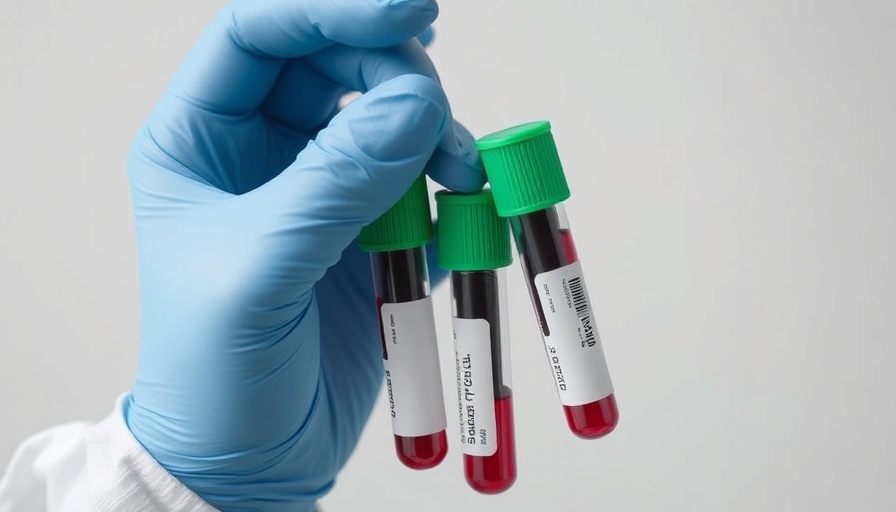
Combining Forces Against Colon Cancer: A Breakthrough in Treatment
Colon cancer remains a significant health challenge worldwide, with over 1.9 million new cases diagnosed each year, positioning it as the third most prevalent cancer globally. Recent advancements in treatment, particularly the combination of immunotherapy and chemotherapy, are opening up new avenues for reducing both recurrence and mortality rates among patients. A new study highlighted at the 2025 American Society of Clinical Oncology (ASCO) Annual Meeting reveals a revised strategy that could change the game for stage 3 colon cancer patients.
Understanding the Impacts of Deficient Mismatch Repair (dMMR)
Colon cancer, particularly the deficient mismatch repair (dMMR) subtype, presents unique challenges as it tends to be less responsive to traditional chemotherapy treatments. This subtype affects between 5-15% of colon cancer cases and is characterized by its genetic mutations that hinder the DNA repair process. Such mutations complicate treatment protocols, often leading to poorer outcomes for affected patients.
A New Hope: Immunotherapy with Atezolizumab
The ASCO study assessed the impact of adding atezolizumab, an immune checkpoint inhibitor, to the standard mFOLFOX6 chemotherapy regimen post-surgery for patients with dMMR stage 3 colon cancer. This innovative approach demonstrated remarkable results, suggesting that combining these therapies could potentially halve the rates of cancer recurrence and mortality. With an average participant age of 64, the findings signify a pivotal moment in tailored treatment methodologies for colon cancer.
What Does This Mean for Future Cancer Treatments?
The study's revelations not only underscore the importance of ongoing research in the fight against cancer but also highlight how personalized therapies are evolving. The introduction of immunotherapy into conventional treatment regimens could set a precedential shift in how oncologists approach patient care, particularly for challenging cancer types like dMMR colon cancer.
Connecting to Global Health Themes
As we navigate through health research, it’s essential to understand that cancer treatment advancements must be framed within the larger context of global health. The World Health Organization consistently reports on cancer statistics, emphasizing the need for efficient health policies to combat diseases. The significant breakthroughs in cancer treatments, like those proposed in this ASCO study, are crucial in addressing the global burden of cancer and must continue to be prioritized.
The Role of Healthy Living in Cancer Prevention
Incorporating healthy habits into daily life is invaluable—not just for those currently battling cancer but for everyone, to mitigate risks. Research consistently underscores the significance of diet, exercise, and mental health on overall wellness. Keeping active with regular fitness routines, consuming nutritious foods, and managing stress can contribute to a healthier, disease-resistant body. By understanding how our choices impact our health, we empower ourselves to make informed decisions.
Emotional Impact: Real Stories of Hope
As the research updates unfold, it is crucial to remember the human stories behind the statistics. Patients and caregivers navigating the complexities of cancer understand the desperate need for effective treatment options. The prospect of combining immunotherapy and chemotherapy not only brings hope for improved survival rates but also offers a chance to reclaim life and joy amid adversity.
A Call to Collective Action
As exciting as these advancements are, the journey doesn't end here. Advocates, healthcare professionals, and communities must unite to push for access to these new treatments globally. Ensuring that breakthroughs reach all corners of the world requires our collective effort and determination. Let's advocate for further research funding, equitable healthcare access, and spreading awareness about preventive measures.
With the ever-evolving landscape of cancer treatment, sharing this information can empower individuals and communities. Engage in discussions about health and wellness, make informed lifestyle choices, and support initiatives that foster better research and healthcare policies. Together, we can make strides toward reducing the impact of colon cancer and improving the lives of those affected.
 Add Row
Add Row  Add
Add 




 Add Row
Add Row  Add
Add 

Write A Comment